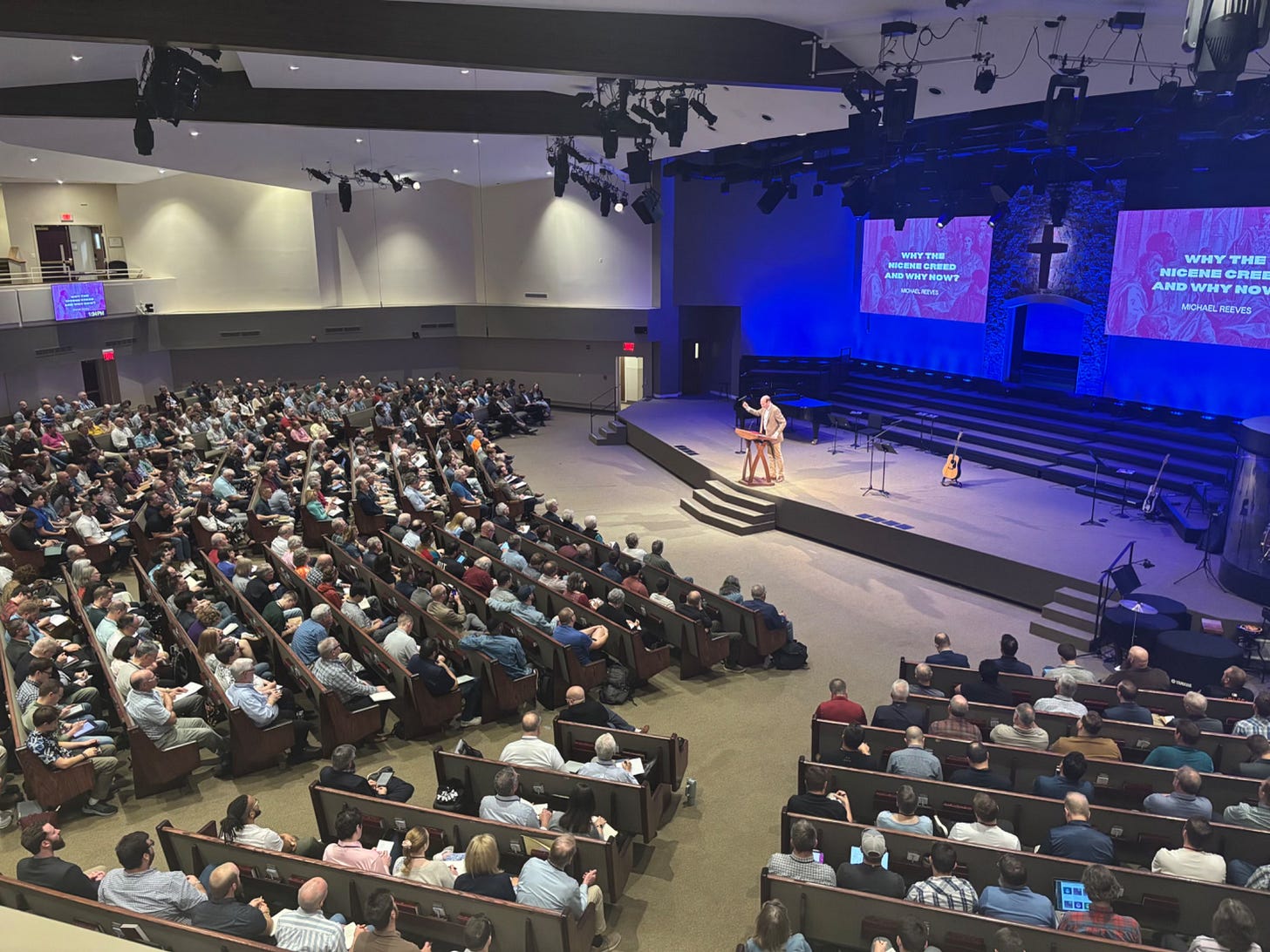I’m back from the Credo x Sola conference in Washington. Those who could not make it have asked me, what did you think? My answer: I was overwhelmed. Overwhelmed, that is, by the eagerness of those who attended to know and worship our triune God. It is truly powerful hearing 700+ people say the Nicene Creed together, and not just once but several times each day of the conference. I was reminded that the creed is not only essential for sound doctrine but instrumental to true worship. I did not plan on it, but towards the end of my message I went off script to say just that, encouraging laypeople and pastors alike to incorporate the creed into their worship each Sunday.
But here are a few more reasons the conference was overwhelming in the best way possible:
1. Unity: many traditions came together around orthodoxy. People came together from so many traditions: Baptist, Presbyterian, Anglican, Lutheran. This is what Nicene orthodoxy is supposed to look like. Beautifully Christian.
2. Deep theology: each theologian delivering robust teaching on the Trinity of Nicaea
3. Zeal: attendees bought so many (!) theology books to go home and learn more
4. Worship: we repeatedly said the Nicene creed together as a spiritual exercise.
5. Humility: a truly unique mark of the conference was dialogue over classical texts as attendees personally interacted with speakers in a spirit of faith seeking understanding (Anselm).
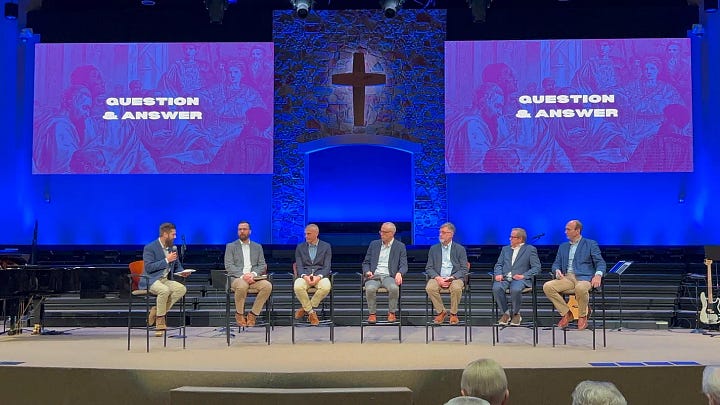
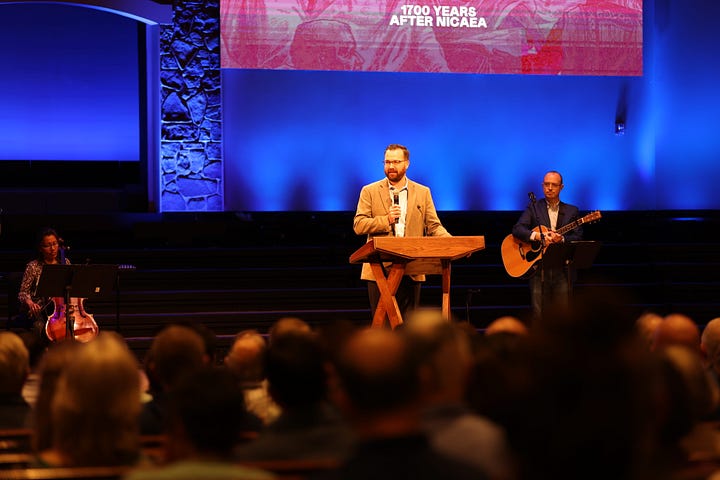
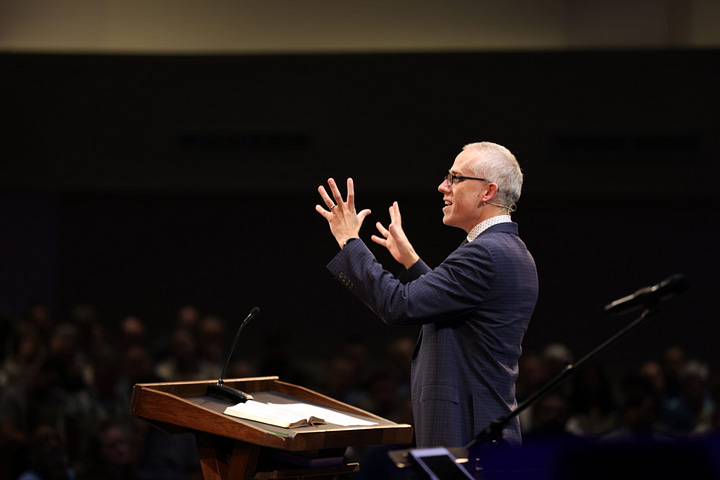
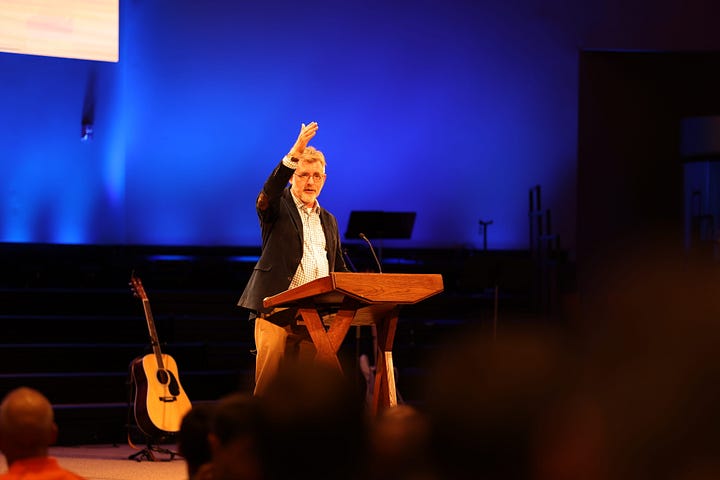
There were many high points to the conference, but here are a few our team at Credo found so good:
1. Michael Horton singing the Gloria Patri to conclude his message.
2. Fred Sanders drawing his *Nicene Line* to keep subordination out of the Trinity.
3. Michael Reeves starting Q&A with a defense of catholicity
4. If I can put one in myself, watching Jesus in John 5 demonstrate inseparable operations (and why that doctrine matters for worship)
5. Gavin Ortlund’s tears over the burial of Christ.
6. Kevin DeYoung’s love for Gregory’s pastoral rule and his encouragement to apply its orthodoxy in the church
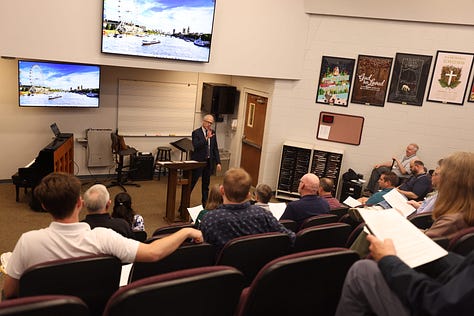
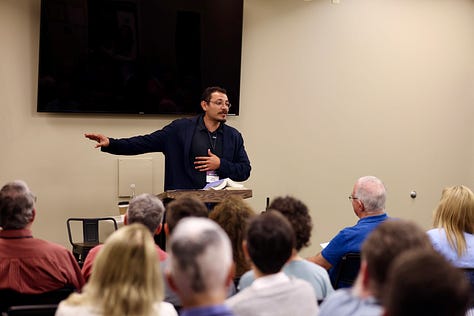
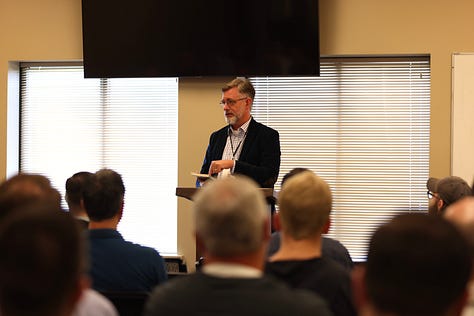
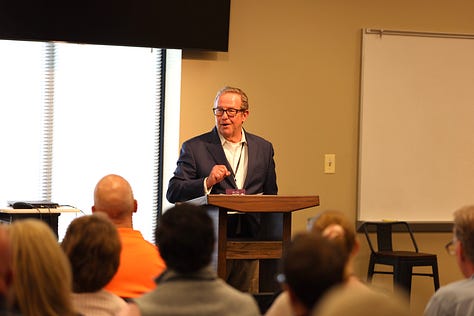
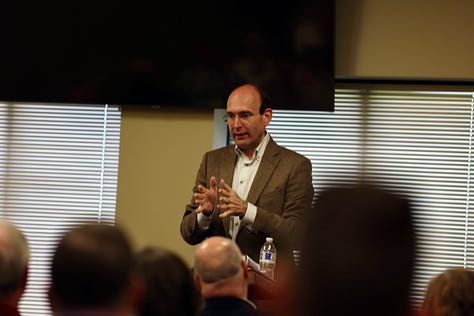
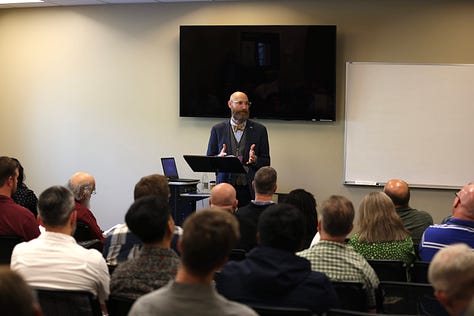
And how can I forget the breakout sessions, which we named Anselm Houses after the great scholastic thinker and his emphasis on faith seeking understanding. Each breakout was devoted to reading a classical text from a major theologian from the Great Tradition…out loud. Then each speaker (as well as others like Brannon Ellis, Adriel Sanchez, Jesse Johnson, etc.) engaged attendees in a Socratic dialogue, contemplating the Trinity together. I heard back from attendees how much they appreciated a smaller space like this to talk with speakers on a deeper level and think out loud with one another.
Plus, we had fun too. Did you know that my daughter Georgia sold out of her crochet theologians an hour before the conference even started? If you didn’t get one, or if you are seeing these for the first time and got to get one, send her a message on Instagram and place your order. I asked her what theologians she plans to crochet for next year’s conference? Rumor has it that Bavinck might make an appearance (Baker Academic, if the rumor is true, you’d better come with Reformed Dogmatics).
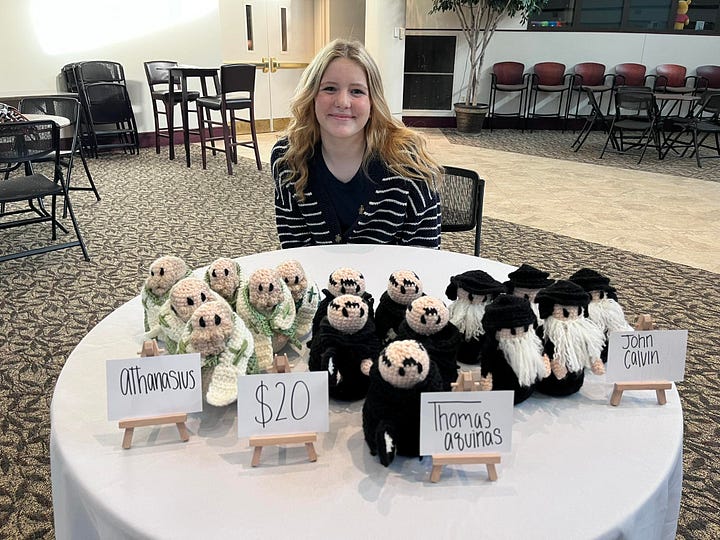
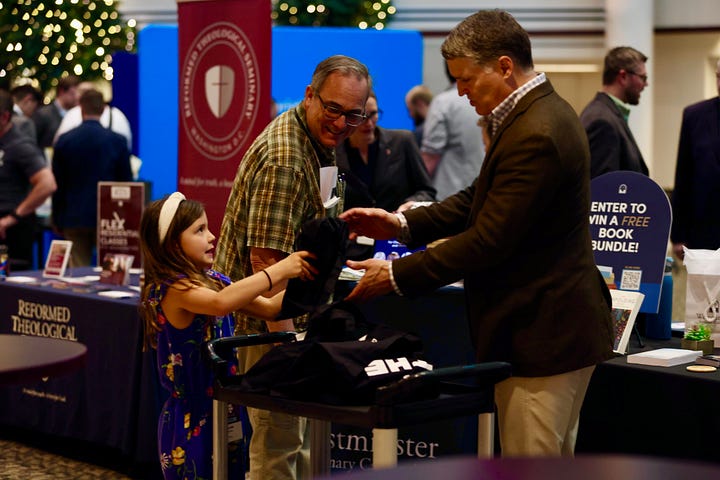
I can’t release the topic for next year’s conference. But after taking one long nap upon returning from D.C., I woke up excited about it already. I think you will be too.
In the meantime, a few more updates on my end:
My Systematic Theology continues! In preparation for the Credo conference, I went back and re-read Aquinas on the Trinity. I love how he ends with the Trinity’s missions. One task in my systematic is to connect the processions in the Trinity to the Trinity’s missions. Aquinas is a great model, so that even when he transitions to missions to explain how we receive grace, he never leaves the Trinity behind. Notice how he defines a mission: “Now a mission is a procession in time.” He is building on Augustine at this point. He goes on to conclude that “there is no mission or temporal procession of a divine person except by reason of grace.” Aquinas makes me wonder if we need to connect processions and missions more explicitly in our theology today if we are to put the full scriptural power behind our articulation of divine grace.
We just released a Credo colloquy between me and D. A. Carson. We reflect on his career together. I appreciated his firm defense of “Son of God” language even when he was criticized by missionaries to Muslims who wanted to dispense with it. Carson also expressed some words of correction for our age, warning us that we are too caught up in our public image. His story about the humble ministry of his father reminds us what God really cares about. And it’s not triumphalist theology, as Carson puts it.
I pray on a regular basis that renewal would come to the church through the recovery of the Nicene Creed. So I am honored to deliver the annual theology lecture at Regent University. And on my birthday! They are accepting paper proposals for breakout sessions. Join me! It’s a privilege to speak alongside patristic scholar John-Paul Lotz as well.
I am excited to share that Adonis Vidu will deliver the lecture for the Center for Classical Theology on November 17th (evening before ETS). Lewis Ayres will join him afterwards in a discussion. And out of all places, the historic Tremont Temple in Boston. Registration is now open! Dr. Vidu has titled his lecture, *The Christian experience of the Trinity.* To learn more, go to CCT.
Now that I’m back from the conference I’m back to writing my systematic. More updates to come on what I’m learning…and reading. I look forward to sharing more with you soon.




